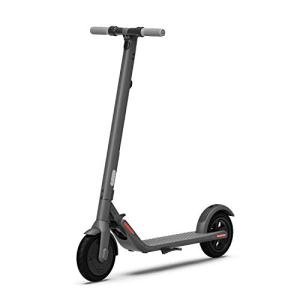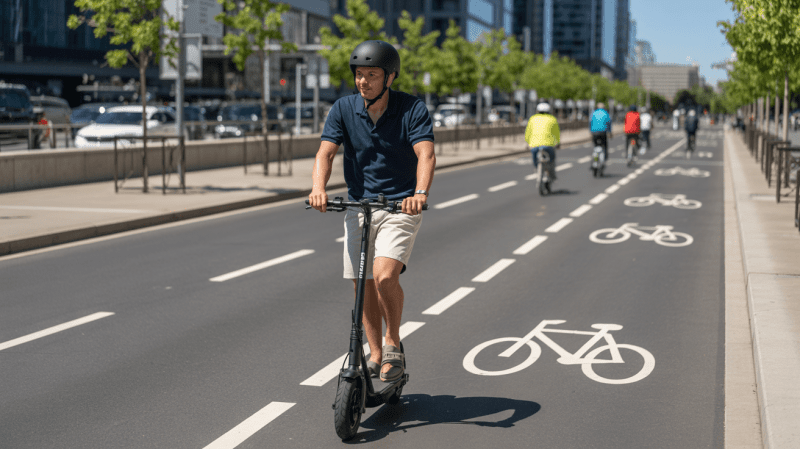Electric scooters are revolutionizing the way we think about urban transportation. With the rise of companies like Lime and Bird, e-scooters have become a popular choice for city dwellers looking for a convenient and eco-friendly way to get around town. But how do they stack up against traditional gas scooters in terms of speed?
One of the biggest advantages of e-scooters is their impressive acceleration. Most models can go from 0 to 15 mph in a matter of seconds, making them ideal for short commutes in busy city streets. Gas scooters, on the other hand, typically have a slower acceleration due to their reliance on traditional internal combustion engines.

In terms of top speed, e-scooters also hold their own against their gas-powered counterparts. Most electric scooters can reach speeds of up to 15-20 mph, which is more than enough for navigating through city traffic. Gas scooters, while capable of reaching higher speeds, are often limited by local speed regulations and traffic congestion.
Environmental Impact: Electric vs. Gasoline Power
With the rise in popularity of electric scooters, many are questioning the environmental impact of these vehicles compared to traditional gas-powered scooters. Electric scooters are becoming a popular choice for commuters looking for a more eco-friendly option. On the other hand, gas scooters have been around for much longer and are still widely used. Let's take a closer look at the environmental impact of electric vs. gasoline power.
Electric scooters are often touted as a more environmentally friendly option compared to gas scooters. This is because electric scooters do not produce any emissions while in use, unlike gas scooters which emit harmful gases into the environment. Electric scooters are powered by rechargeable batteries, which can be charged using electricity from renewable sources, further reducing their carbon footprint. On the other hand, gas scooters rely on gasoline, a fossil fuel that contributes to greenhouse gas emissions and air pollution.

In addition to reducing emissions, electric scooters also have a lower overall environmental impact compared to gas scooters. Electric scooters are typically more energy efficient, meaning they require less energy to operate compared to gas scooters. This leads to lower overall energy consumption and less strain on the environment. Furthermore, the production of electric scooters tends to have a smaller environmental footprint compared to gas scooters, which require the extraction, refining, and transportation of fossil fuels. Overall, when considering the environmental impact, electric scooters are the clear winner over traditional gas scooters.
Cost Analysis: Savings with E-Scooters
With the rise in popularity of e-scooters as a sustainable mode of transportation, many riders are seeing significant savings compared to traditional gas scooters. Let's take a closer look at the cost analysis of using e-scooters and how they can outpace their gas-powered counterparts.
One of the most obvious ways that e-scooters can help riders save money is through fuel costs. While gas prices continue to fluctuate, electric scooters can be charged for just a fraction of the cost of filling up a gas tank. This means that riders can enjoy the convenience of getting around town without breaking the bank.
Additionally, maintenance expenses for e-scooters are often much lower than those for gas scooters. With fewer moving parts and no need for oil changes, e-scooters require less upkeep, saving riders both time and money in the long run. This cost-effective advantage makes e-scooters a more affordable option for daily commuting.
Popularity Shift: Rise of E-Scooter Usage
In recent years, there has been a noticeable shift in popularity towards electric scooter usage over traditional gas scooters. E-scooters have quickly become a convenient and eco-friendly mode of transportation in urban areas, offering a cost-effective and efficient way to travel short distances.
One of the key factors driving the rise of e-scooter usage is the increasing demand for sustainable transportation options. With growing awareness of environmental issues and the need to reduce carbon emissions, more people are turning to electric scooters as a greener alternative to gas-powered vehicles.
Furthermore, the rise of ride-sharing services that offer electric scooters as a convenient option for quick trips around the city has also contributed to their popularity. E-scooters are easy to use, require minimal maintenance, and are a fun way to navigate busy streets.







